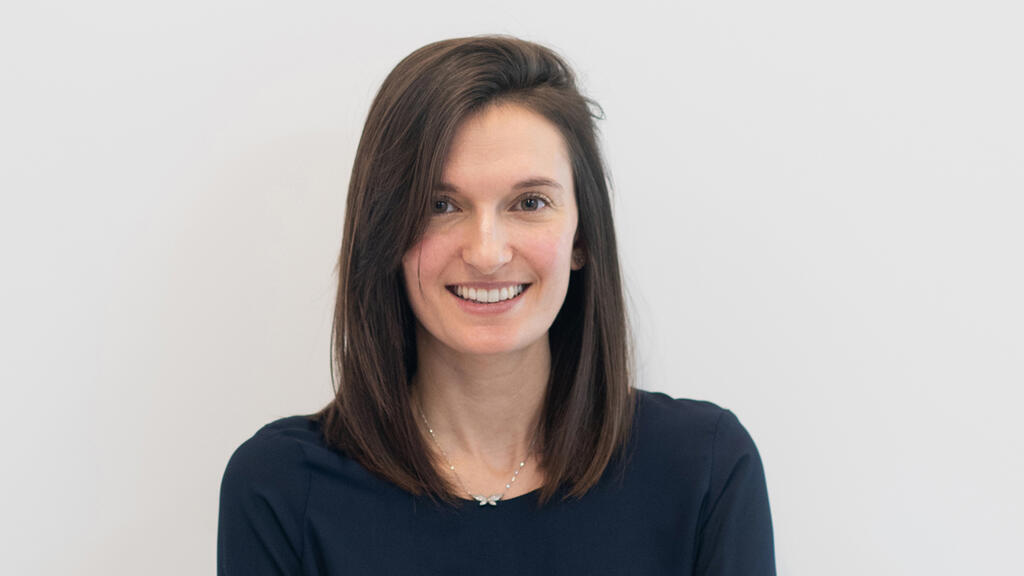
She-inspires
"Investors always say they 'invest in people' but they don't know how to evaluate their potential"
In an interview with CTech, Noa Matz, Social psychologist and Operating Partner at F2 Venture Capital, explains her mission to bridge the gaps between investors and founders, her vision for social psychology, and her tips for her fellow women
“I want the position of VC psychologist to become mainstream. It makes sense, and the industry needs to learn that, but there is a lot of work to be done. Investors need to ask themselves ‘what type of person do I want to be for my founders’ so that they will want to speak up. There really isn't a conflict of interest, we are all on the same side - it should be a win win,״ says Noa Matz, Social Psychologist and Operating Partner at F2 Venture Capital.
F2 Venture Capital is a Tel Aviv-based VC firm that invests in early-stage technology companies. With $400 million under management, F2 has backed companies such as Explorium, Justt, Parametrix, as well as the more notable monday.com, and eToro.
Matz is an expert in founder dynamics and performance coaching for startup teams and executives. Previously, she founded and led Team Diligent, a boutique consulting firm advising founders to enhance their performance and take high-risk decisions in stressful and uncertain conditions. In this capacity, Noa served as Special Advisor to Natural Intelligence, Aurora Labs, Guesty and other successful startups, as well as corporates like SAP.io
Matz always knew she wanted to be a psychologist and found a way to tie that to venture capital. In an interview for CTech’s ‘She-inspires’ series Matz shared her thoughts on the future of social psychology, how to close psychological gaps between founders and investors, and her tips for her fellow women. It's important to note, she conducted the interview while holding her 2-month old daughter in her hands without missing a beat.
CTech's She-inspires series follows the stories of various female leaders in Israel. The interviewees hail from various sectors: some work at high level positions in large organizations, some are founders, and some are key players in industries aimed at changing the world for the better. The goal is to learn where they came from, where they are going and how they are bringing inspiration to an entire sector making its way towards a glass ceiling just waiting to burst.
Elaborating on some of the challenges founders and investors face Matz explains: “As a founder, it's difficult to find a professional who understands the industry jargon. On the other hand, early stage investors always say ‘we invest in people’ but they don't necessarily know how to evaluate people, teams, dynamics or potential. Also, the VC game today is not as financial as it used to be in the past, it's much more holistic, there are many more elements to it.”
What does a social psychologist do for founders?
“First, I create trust. I just listen - I really enjoy listening to people. Trust starts from day one when the founders step into our office asking for an investment, when we haven't even decided to invest in them yet. I am the smiling face in the room, when there is a question that makes them squirm I will try to help them. However, real trust can take between a month and two years. My goal is to have them say to themselves ‘she is my VC but she is also on my side’.
“For me, our founders come first and they can trust me when I say I am not going to pass on what they chose to confide in me. My philosophy is that our partners need to be open and not judgmental. Once a founder decides to talk to us, tell us something, then we must be mindful because if we aren't, next time they won't come. We believe in being compassionate investors, we understand that if a founder is comfortable with us then we will be more successful, together."
Matz further explains that founders find it more difficult to turn to psychologists. “I think they feel the need to be strong in front of their employees, otherwise, the employees might get nervous. The facade is important for them and turning to a psychologist may be viewed as the polar opposite of strength. Also, in treatment, they are encouraged to look inward and that can be debilitating. Diving into your past can take a mental toll that makes it harder for them to funcion afterwards.”
Related articles:
What are your tips for women entrepreneurs, or founders in general?
“Ask for help. I almost never say no when people ask me for help. So many people helped me along my journey. That's how you get ahead, it's how this industry works, especially here in Israel. I would have never been successful if it wasn't for the help of others. Don't be embarrassed to ask. I did and I saw how it helped, how people responded, and I am grateful. So I try to pay it forward. That is the secret to success in our industry.”
When asked if she sees any difference between women and men Matz replied “honestly, I haven't worked with enough female founders. Statistically it's only about 5%”. Matz feels the reason for this is that women need a lot of information before they start a journey. “Perhaps we need to push women to go ahead without having all the information, to give them the feeling that they're good enough as is. For men, I think this comes easier. With my daughter, I will make sure not to say ‘be careful’ all the time. In that aspect we need to treat girls and boys the same. She won't break, we are not made of butter.”
